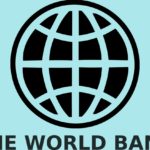ISLAMABAD: The exports of the country registered growth of 5.8 percent in July 2020, in dollar value terms, as compared to July 2019.
This growth was recorded after a decline in exports for the last four months, since March 2020, when there was a drop of 8 percent compared to same period last year.
This declined widened in April 2020, with a drop of 54 percent in exports, which improved but remained at 35 percent in May 2020, improving further to only 6 percent fall in exports in June 2020, as compared to same period last year.
This was revealed at a meeting chaired by Advisor to the Prime Minister on Commerce and Investment, Abdul Razak Dawood, at Ministry of Commerce on Tuesday, to review the recent trade statistics and devise plans for improving the exports.
The meeting was attended by senior officers of the Ministry.
The latest statistics of exports and imports of Pakistan were reviewed in the meeting.
The strategies for product and geographical diversification were also reviewed in the meeting, in context of the recent trade statistics.
One of the major sectors which showed good progress is Food Processing sector where a growth of over 300 percent was observed in July 2020.
Similar growth was witnessed in Made-Upsand Clothing Accessories sectors.
In addition, Fish and Fish Products sector recorded a healthy growth of 50 percent, while Home Textiles sector, which was declining in the previous months, is now back up with 24 percent growth.
In terms of exports, a major decline is witnessed in rice and cement, which fell down to 24 percent and 12 percent respectively in July 2020, as compared to same period last year.
There is also a decline in the export of raw leather and cotton yarn, which is a clear indication that the Government’s policy to pursue value-added exports is showing results.
On the import side, a decline of 4.2 percent, in dollar value terms, was recorded in July 2020, as compared to July 2019.
Due to this increase in exports and decline in imports, a 14.7 percent improvement in trade balance is witnessed in July 2020 as compared to July 2019.
On the geographical diversification, not much progress has been shown in July 2020 as the exports still seem to be heavily dependent on traditional export markets.
Talking in the meeting, Abdul Razak Dawood appreciated the exporters as well as the government departments for coordinating their efforts in the testing times during the ongoing pandemic.
He added that this achievement is particularly noteworthy because of the fact that a decline was being observed until the last month and a turnaround of around 12 percentage points has been achieved in just one month.
Dawood underlined that the Ministry of Commerce will be evaluating its geographical diversification in order to re-align the focus towards new opportunities.
He also advised the Ministry officers to extend all kind of necessary support to the exporters in order to achieve the targets, not only in terms of numbers but also with regards to intended policy outcomes.




